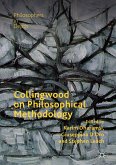Since immemorial times, persons have been engaged in disputes in metaphysics. This book reacts to this fact by supporting five theses. Thesis 1 is that disputes are micro-wars that have a significant social importance; they involve conflicting parties who may resort to some kind of violence and depend on normative factors. Thesis 2 is that disputes can be approached from right-wing or left-wing stances. Thesis 3 is that the grounds for endorsing an approach to a dispute are problematic starting points that may be rationally rejected. Thesis 4 is that disputes have an incommensurable greatness. Thesis 5 is that right-wing approaches to disputes may be less appealing than the left-wing one championed by the book for those who endorse that one is to avoid expressing "subtle" violence. This is the violence expressed by those who suggest that others who disagree with one's criteria to deal with disputes fall short of logos or act as if such others did not exist.
Dr Felipe G. A. Moreira worked as a Lecturer of Philosophy at the University of Miami in Florida, USA. He also held the posts of Substitute Professor of Philosophy at Lavras Federal University in Minas Gerais, Brazil, and of Science, Technology and Society Lecturer at Code University of Applied Sciences in Berlin, Germany.
Dieser Download kann aus rechtlichen Gründen nur mit Rechnungsadresse in A, B, BG, CY, CZ, D, DK, EW, E, FIN, F, GR, HR, H, IRL, I, LT, L, LR, M, NL, PL, P, R, S, SLO, SK ausgeliefert werden.









